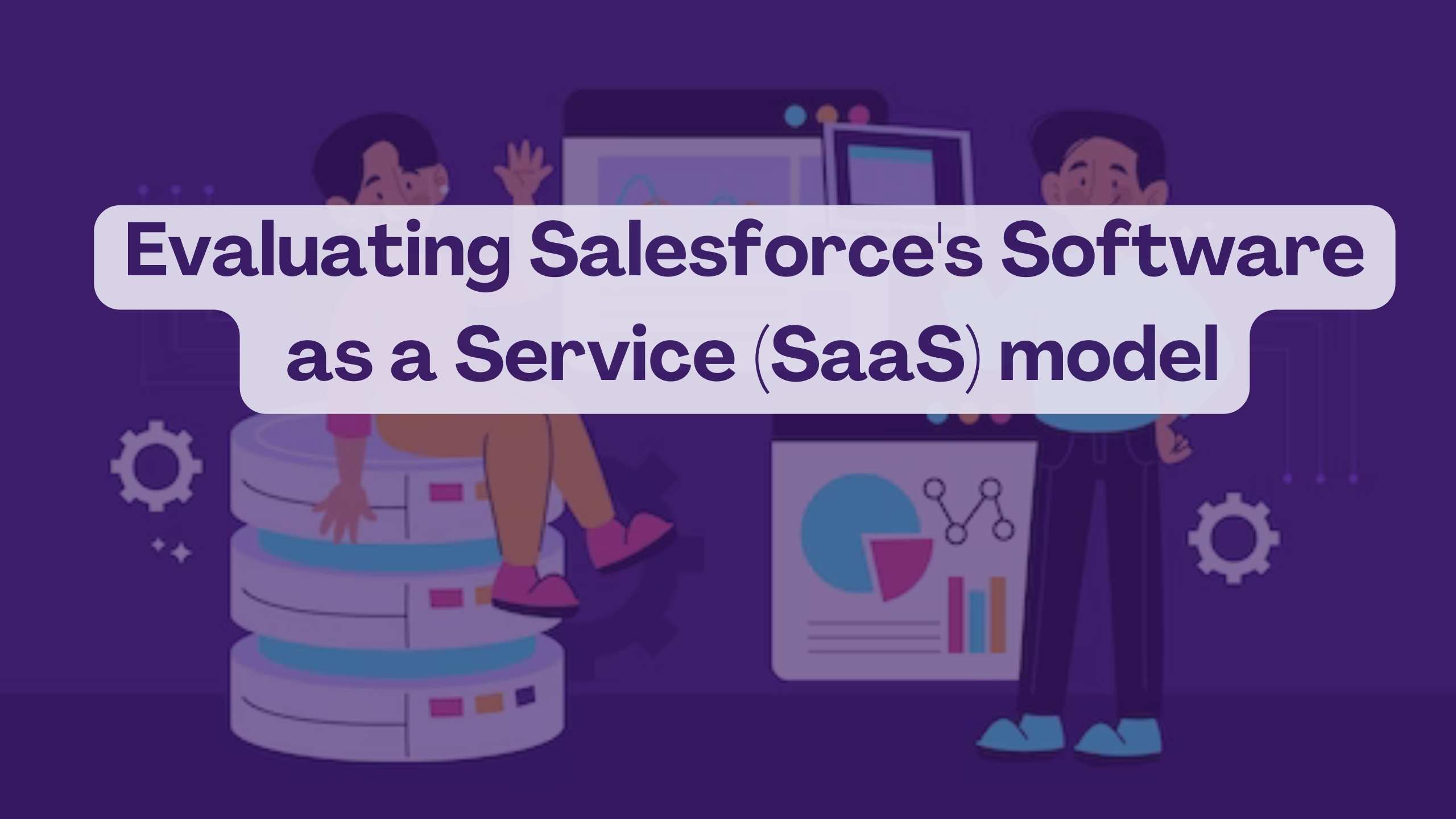Evaluating Salesforce’s Software as a Service (SaaS) model
- Proposal Software Customer Relationship Management


Evaluating Salesforce’s Software as a Service (SaaS) Model
Salesforce, a pioneer in cloud computing, has revolutionized the software industry with its innovative Software as a Service (SaaS) model. In this article, we’ll delve into the essence of Salesforce’s SaaS offering, explore its key features, and evaluate its relevance in today’s digital landscape.
Understanding Salesforce as a SaaS Platform
Salesforce offers a comprehensive suite of cloud-based applications that cater to various business needs, including customer relationship management (CRM), marketing automation, analytics, and more. Here’s a closer look at Salesforce’s SaaS model:
1. Scalability and Accessibility
- Salesforce’s SaaS model provides scalability, allowing businesses to easily scale their operations up or down based on their requirements. Moreover, being cloud-based, users can access Salesforce’s applications from anywhere, anytime, using any device with an internet connection.
2. Customization and Integration
- One of Salesforce’s strengths lies in its ability to be customized and integrated with other systems seamlessly. Users can tailor the platform to suit their specific business processes and integrate it with third-party applications to streamline operations.
3. Continuous Innovation
- Salesforce continuously innovates its platform, introducing new features and enhancements to address evolving business needs and technological advancements. This ensures that users always have access to cutting-edge solutions to stay competitive in their respective industries.
4. Security and Compliance
- Security is paramount in the digital age, and Salesforce prioritizes data security and compliance with industry standards and regulations. With robust security measures and regular audits, users can trust Salesforce to safeguard their sensitive information.
5. User Experience and Support
- Salesforce offers a user-friendly interface and provides comprehensive support resources, including documentation, training materials, and a vibrant community of users and developers. This ensures that users can leverage the platform effectively and maximize its potential.
Exploring Relevant SaaS Products
Let’s explore some relevant SaaS products that complement Salesforce’s offerings and enhance its functionality:
1. HubSpot
- HubSpot offers a suite of inbound marketing and sales software, providing tools for lead generation, email marketing, and customer relationship management.
2. Zendesk
- Zendesk provides customer service software and support ticketing system, helping businesses manage customer inquiries and support interactions efficiently.
3. Mailchimp
- Mailchimp is a popular email marketing platform that enables businesses to create, send, and track email campaigns effectively.
4. Tableau
- Tableau offers data visualization and analytics software, empowering users to explore and understand their data through interactive dashboards and visualizations.
5. DocuSign
- DocuSign is a digital transaction management platform that allows businesses to send, sign, and manage documents securely online.
Conclusion
Salesforce’s SaaS model has redefined how businesses approach software solutions, offering scalability, flexibility, and innovation. As businesses embrace digital transformation, Salesforce remains a key player in empowering organizations to connect with their customers, streamline operations, and drive growth.
Discover exclusive deals and discounts on a wide range of SaaS tools, including Salesforce integrations and complementary solutions, at Subscribed.FYI Deals. Sign up today to access special offers and optimize your SaaS stack for success.








